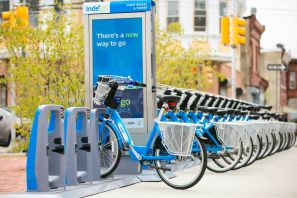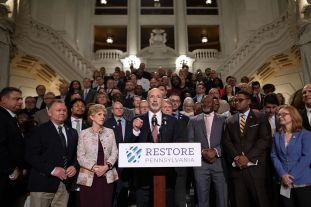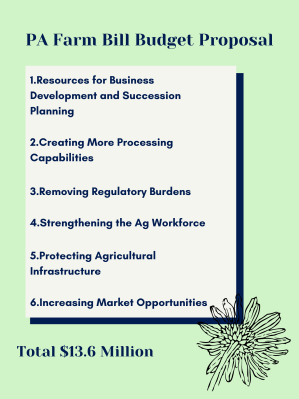Coronavirus has given Pennsylvania an opportunity to rebuild itself and lead the nation in a more sustainable direction.
So far, the pandemic has cost over 25,000 lives in the commonwealth. It has shown the magnitude of inequities that exist in healthcare, education and the economy. A silver lining of this tragedy shines through this Earth Day and allows Pennsylvanians to envision a better future for themselves and their families once things return to normal.
Transportation
Telecommuting has been the fastest growing method of commuting over the past few years, according to Brookings. The pandemic has greatly increased this trend. Students are going to classes online, many parents are working from home, air travel has significantly decreased and people are not attending events outside of their homes. About one in five chief financial officers said they plan to keep at least 20% of their employees working remotely post-pandemic. Recent studies show the average job applicant is willing to take an 8% cut to their hourly wage, so they can have the option to work from home.

The PennDOT Active Transportation Plan is dedicated to improving sustainable and active transportation. PennDOT states that transportation accounts for 21 percent of greenhouse gas emissions, and the state is currently ranked 48th in the U.S. for poor air quality, according to America’s Health Rankings. If eight percent more children walked or biked to school, it would be equivalent to removing the pollution from 60,000 cars per year. Studies show that 43 percent of commuting is within three miles or less. These trips could be replaced by biking or walking.
New technology has created a market for bike-sharing companies such as Indego. Indego offers hundreds of bikes at station locations near community resources in Philadelphia.
Broadband
In order for transportation to make a significant impact going forward, broadband will need to be accessible by every adult. In 2018, 20 percent of rural households lacked internet access. The internet in rural communities has proven to be significantly slower than it is in urban communities.

The Restore Pennsylvania plan is a $4.5 billion bipartisan proposal to bridge the digital divide in all communities, sponsored by Rep. Jake Wheatley and Rep. Thomas Murt (recently retired). The plan would be funded by a severance tax and will invest the $4.5 billion in “high-impact projects throughout the commonwealth to help catapult Pennsylvania ahead of every state in the country in terms of technology, development, and infrastructure.”
More than 60 stakeholders and municipal leaders have endorsed this plan. However, the state legislature has yet to pass it. Gov. Tom Wolf said in a press conference that there are still 160,000 people who lack access to the internet. This proposal is critical to rebuilding a more sustainable future by providing Pennsylvanians the resources needed to telecommute.
Agriculture
With many people switching to grocery delivery options like Instacart, local farmers have been severely impacted over the past year. Sustainable farming is key to protecting the environment and providing nutritious food across the commonwealth. The need for community-supported agriculture programs (CSAs) has never been more apparent.

In order to create a healthier and more sustainable food chain, Pennsylvanians need to return to locally sourced crops instead of continuing to lean on DoorDash and Uber Eats. Gov. Wolf just recently proposed funding for the Pennsylvania Farm Bill for the third consecutive year. The first installment of this bill came in 2019 and led to almost $50 million invested in agriculture.
The 2021-2022 proposal includes $13.6 million in funding. It provides $1 million to support the animal agriculture industry with disease prevention and food safety assurance. It will put $500,000 towards reestablishing the Agriculture and Youth Grant Program, which funds youth organizations to help increase knowledge of agriculture throughout the commonwealth. There will also be $3 million set aside to fund rapid responses to agricultural disasters like Spotted Lanternflies or foodborne illnesses. PA Preferred Organic will receive $1.6 million to make Pennsylvania the leading organic state in the nation.
Agriculture Secretary Russell Redding said in a press conference that he believes the bill will “further strengthen our resiliency as we support farmers, harness the power of research and technology, and build a more food-secure tomorrow.”
Go Green
Pennsylvania has the opportunity to lead the way with smart, common-sense policies that build a greener future. There are various resources available to help people gain knowledge and understanding of how to capitalize on lessons learned from the COVID-19 pandemic, and there are small actions that all Pennsylvanians can take to help build a more sustainable future.


